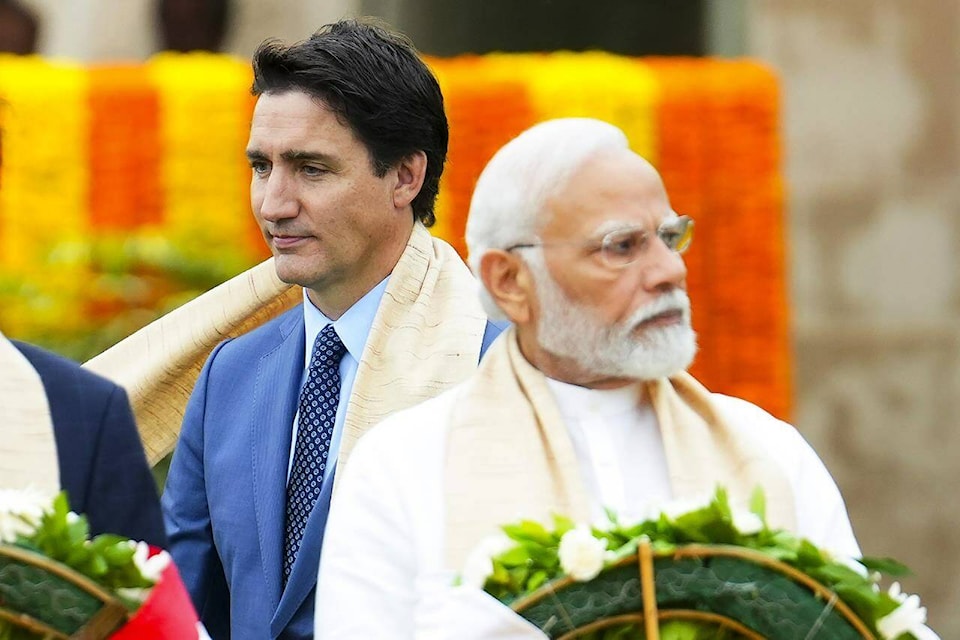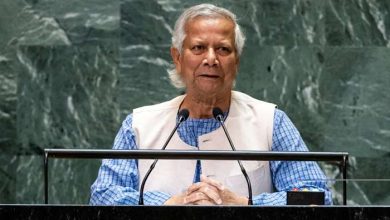Canada unveils disturbing nexus involving Indian officials in targeting Sikh activists
#ModiRegimeUnmasked
 Islamabad: In a startling revelation, Canada has uncovered a troubling nexus among Indian officials, intelligence agents, and criminal organizations targeting Sikh activists within its borders.
Islamabad: In a startling revelation, Canada has uncovered a troubling nexus among Indian officials, intelligence agents, and criminal organizations targeting Sikh activists within its borders.
According to a report by Kashmir Media Service, this disclosure follows the murder of Hardeep Singh Nijjar, a prominent Sikh leader and ardent advocate for the Khalistan movement, whose assassination in June 2023 has drawn widespread condemnation and cast a spotlight on the Modi government’s controversial international tactics.
Reports indicate that high-ranking members of the Research and Analysis Wing (RAW) were allegedly authorized to carry out operations against Sikh activists, with the Washington Post citing Canadian officials reporting that Indian Home Minister Amit Shah was involved in the authorization of intelligence-gathering and attacks in Canada.
Canadian Prime Minister Justin Trudeau stated that the federal police uncovered “clear and compelling evidence” that Indian government agents had engaged in activities threatening public safety in Canada. He described India’s actions as a “monumental mistake,” underscoring the serious implications of employing diplomats and organized crime to conduct attacks on Canadian soil.
The Canadian police investigation has uncovered alarming connections between individuals associated with the Indian government and a criminal network led by notorious gangster Lawrence Bishnoi. The investigation revealed that the criminal activities allegedly orchestrated by Indian diplomats included extortion, intimidation, coercion, harassment, and even targeted killings of Canadian citizens. Furthermore, Canadian authorities have disclosed evidence implicating India’s top diplomat, Sanjay Verma, in the assassination of Hardeep Singh Nijjar.
In response to these developments, Canada expelled six Indian diplomats, including the high commissioner, citing their involvement in Nijjar’s assassination and suggesting a broader effort to target Indian dissidents in Canada. Canada had previously requested that India waive immunity for these diplomats so they could be questioned; however, India rejected this demand, prompting Ottawa’s decision to expel them. This marks a significant escalation in diplomatic tensions between the two countries.
Vina Nadjibulla, research director at the Asia Pacific Foundation of Canada, noted in a media interview that the expulsions represent “a serious escalation in the diplomatic tensions that have been ongoing for over a year now between Canada and India.” She added, “We’re seeing a diplomatic rupture,” emphasizing Canada’s continued calls for Indian cooperation in the investigation, which India has so far refused.
Analysts warn that India’s actions pose a significant threat to both regional and global stability. Critics argue that the Modi regime’s tactics reflect a pattern of state-sponsored terrorism and rogue behavior that jeopardizes peace, not only in South Asia but worldwide. India has faced allegations of financing and planning terror activities, particularly in Pakistan, where it is suspected of engaging in destabilizing operations.
Pakistan has consistently alerted the global community to India’s role in subversive activities, particularly following the arrest of Indian spy Kulbhushan Jadhav, who reportedly disclosed critical information about New Delhi’s involvement in anti-state actions.
The international community is urged to recognize that the RSS-backed Modi regime poses a broader threat to global stability and humanity. As tensions rise, there is an urgent need for diplomatic measures to counter the Modi government’s aggressive and fascist tendencies, ensuring that further lives are not put at risk.








